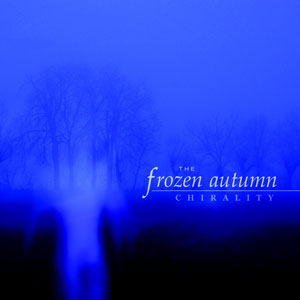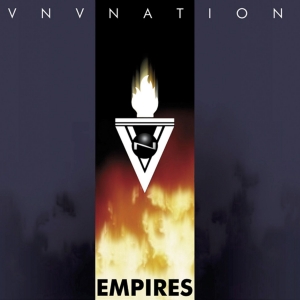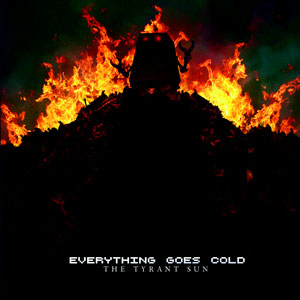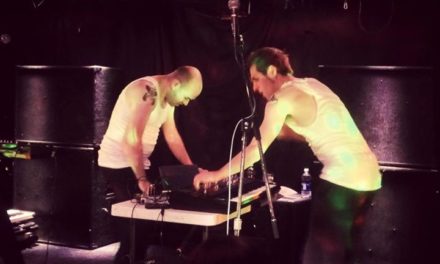“I run my label like a business, other people run it like a hobby.”
18 years. 787 releases and counting. Metropolis Records has been the dominant North American record label trading in industrial and related genres for a decade and a half, and in that time have been hugely influential in shaping what gets played in clubs and headphones on this side of the Atlantic. Started as an adjunct to his Philadelphia record store, Metro continues to be owned and operated by Dave Heckman, who has navigated the label through changes in both the style of industrial club music, and the rise of file sharing and the digital music market. In December the ever-affable Heckman spoke to us from his office in San Francisco about the origins of Metropolis, how to run a business successfully and what role labels have in the current musical landscape.
ID:UD: Metropolis evolved from being a record store, licensing bands and releases from European labels. Can you tell us how that transition came about?
Dave: That’s correct. The record store was started 21 years ago in 1991. In 1993 I started contacting labels overseas, specifically ones I had imported releases by – Zoth Ommog, Hyperium if you remember them – all the labels that are gone now. I didn’t have a whole lot of direct contact with bands, but I really liked the European sound even though some of the acts with that sound were from North America and were already licensed to European labels. In fact, the second band we ever licensed was Mentallo and the Fixer, and they were an American band. I believe when I put out their third album that was probably the first time I ever signed a band directly. I got a reputation pretty fast for treating bands well and paying them well, so they started coming to us.
ID:UD: A lot of time has gone past since your first releases in 1995, which grew out of that personal appreciation for a certain sound. How much of what Metropolis releases now is still a reflection of your taste?
Dave: Less than it used to be. *laughter* Just a quick correction, people keep throwing out 1995, our first release was in May of 1994. There’s no doubt about it, in the beginning probably 90% of our first 100 or 150 releases were based on my personal taste. To be honest, dark evil music began to be less popular, and being a smart businessman I decided to start signing other bands in the genre. Things were going in a different direction. Some people may call me a whore for that, but unlike a lot of other folks this is what I did and do for a living. I was much older than most of the rest of the people who had labels, and I made that decision, to do this for a living. So when there was something popular in the genre that I may not have cared for dramatically, I released it. Many of the artists even knew that, but went with us because they knew Metropolis did a good job. There was a time about 7 or 8 years back where I started to do stuff entirely outside the genre, like Moving Units, Electric Six, some indie rock stuff. And I wasn’t successful at it, I’ll be honest. There were various reasons for that: different market and a different way of marketing things. As cool as Metropolis might be considered in the genre, we were considered uncool to that audience. I had good relationships with the bands, but many people in the goth/industrial scene didn’t like that we were doing it, which I find a bit narrow. A lot of bands got flack for signing with Metropolis, when they were signing because of our reputation for paying well. It was tough to market stuff outside the genre because the Pitchforks, the “tastemakers” thought we were a joke. I mean, most people outside the genre think of industrial as a joke, which is unfortunate.
“If you come from industrial, in a way you’re tainted.”
ID:UD: That’s something we also struggle with in our coverage. Much of the new indie electronic stuff covered by indie sources and what we cover comes from the same place, it just diverged in audience at some point.
Dave: Yeah, obviously there is some crossover. For example Siouxsie & the Banshees, Cure-type goth stuff, indie clubs will play that stuff. That’s about it. The rest of it, they don’t get it. If you come from industrial, in a way you’re tainted. That wasn’t the way it was a long time ago, in the early nineties or in the eighties, it just got uncool at some point. When I started the record store back in ’91 there were club nights that were playing Mentallo and the Fixer, Project Pitchfork, Frontline Assembly and then Jane’s Addiction, Jesus & Mary Chain, all together. Than it changed to industrial and techno, than all of a sudden just industrial. In a way that made it easier to market industrial, but now it’s much harder overall. Sometimes I do hear industrial bands played in non-industrial clubs, but it’s few and far between.
ID:UD: We’ve heard it argued that being niche market can help industrial artists in some ways, there’s people who will buy or check out any new industrial that comes out, a built-in audience. There’s a network of DJs and a fan culture that exists. Does that help Metropolis?
Dave: There’s a floor and there’s a ceiling. Maybe the built-in minimum not as much, but there is a ceiling. When I was doing the darker indie rock, because I like that sort of music, it was largely because there was an opportunity. That opportunity was a lot of labels were going out of business or became uninterested in bands I found interesting. What I found out that I didn’t like, was that some bands in the indie rock scene sold as little as they did. I’d look at Soundscan and be like “Wow, I didn’t know it could get that bad.” In the early days there was a built-in minimum, but now there isn’t, and that’s a whole different story. That has to do with so-called file sharing and people burning music.
“I talked to cEvin, Patrick Codenys, and Peter Murphy all on the phone in the same day, I never thought that would ever happen.”
ID:UD: How does a band get signed to Metropolis?
Dave: All you really have to do is reach out, believe it or not. Once we started to get our reputation for breaking industrial acts, well, some larger acts came to us, your KMFDMs and Frontline Assemblys. I remember one day I was sitting in my office and one of my employees told me cEvin Key was on the phone. Yeah right! One day I talked to cEvin, Patrick Codenys from Front 242 and Peter Murphy all on the phone in the same day, I never thought that would ever happen. I was happy to do stuff with Love is Colder than Death and Mentallo and Numb, bands with a smaller audience, but I never had a clue I’d be working with those bigger artists. I’m easily accessible, I’ve had the same e-mail address my whole life, I got it when I started the label. We had an office in Philly when we started the label, than about five years later we moved the office to San Francisco, but aside from that most of the phone numbers have remained constant. We’re easily accessible. People reached out to me, I reached out to people I was interested in. I’ve been accused of stealing bands, but that’s just me reaching out to bands I like, or am interested in. We’re not a major label, you can get a hold of me easily. I’m the guy who signs the bands, it’s always been that way.
ID:UD: You still sign a lot of acts that have a very low profile, or it’s literally their first release. Sometimes it’ll be stuff like The Frozen Autumn who have an audience in Europe but no real fanbase in North America.
Dave: Stuff like the Frozen Autumn is kind of how it was at the beginning, back when I had the record store, which I sold 12 years ago. That was one of the few places to get albums by some of those bands in the whole country. There wasn’t an avenue for this sort of music at all, even distributors would tell me they couldn’t get a hold of these records for me, so that’s when I started going to Europe to import it myself, and that turned into licensing the music. You’re talking about today, but then it was different in Europe from North America, we had a very aggro sound, Coldwave, and I did the dark evil electronic music. That was before what got played in the clubs over there got played in the clubs here, but that changed as well. We were Eurocentric, but that’s flipped, some of the biggest bands on the label now are from North America. Something like the Frozen Autumn, they couldn’t work out a deal with an unnamed label, so they came to me. That’s how it happens. Sometimes people ask why we signed one band and not another, and a lot of it depends on money. A band might want more than we can offer and we can’t do it. Bands will get paid advances based on what I think I can sell. It depends on how many records I think we can move and how realistic they are.
“I was fucked if I didn’t succeed, I had to.”
ID:UD: When we spoke to Eric from Everything Goes Cold about his move to Metropolis, one of the things he mentioned is that Metropolis is a better run label than many others, can you speak to that?
Dave: I have an MBA, a masters degree in business administration ironically enough. I had 15 years of experience in finance and retail and distribution when I started the label in my late thirties. I was fucked if I didn’t succeed, I had to. And from the beginning I was told we were more professional than other labels. They wouldn’t even do things like posters or send out promos, really simple things. There’s a lot of labels that just did the minimum, and didn’t even do that particularly well. As a distributor we’d distribute some of the smaller domestic labels, and they wouldn’t even send us the CDs. I’d call them and be like “We ordered these albums we’ve been out of for a month and they haven’t arrived” and they’d respond with “Oh, I haven’t been near the post office”. *laughter* They were treating it like a hobby. You can’t go into this and run it like that and succeed. You need to know your inventory, know your margins, your cash flow… it’s a business. Once again, some people will slam me for saying that, but if we hadn’t been successful some of this music would never have been heard in this country. I run my label like a business, other people run it like a hobby.
ID:UD: We’ve spoken to artists about Metro, there’s been almost universal belief that being on Metropolis confers a certain level of exposure.
Dave: We’ve been the largest label for 15 years now, and it didn’t take us long to dominate. The logo does sell a few extra copies, some people will be interested in a band because they’re on Metropolis. Let’s say a band like VNV Nation had come out on a smaller label, say one that didn’t service clubs. Would they be as big as they are today? Maybe, maybe not. You can never tell.
ID:UD: How does the day to day at the label run?
Dave: I’ve been in San Francisco for 13 years, and Metropolis the label is in Philly, where I’m originally from. I still talk to my guys there every day, but I’m pretty hands off, I hire people I know can do a good job. After I sign the bands, sign the contracts, sign the cheques, then it moves over to the label in Philly. I employ a production artist/graphic artist, a general manager, a sales manager who sets things up with our physical and digital outlets. We have a promotions manager who does all the radio and club promotions. They handle that stuff, I’m hands off. When I first moved to SF I’d go back 3 or 4 times a year, now it’s every other year believe it or not. I’m not even involved in the day to day, even though I know what’s happening, at one point I did it all. It basically breaks down to me signing the bands, the main office schedules the releases, does the design and sends it off to the manufacturers, interfaces with our distributors. Pre-promotion is more important than post-promotion, but now we’re doing more post-promotion because you can’t have your promos out too soon due to piracy. It’s a business, once again. Honestly, you tell me, is there any other label out there right now that employs more than one person?
ID:UD: We get the impression that many people who work with labels are part time or interns.
Dave: A lot of people do it for the love of the music and that’s fine. Don from 21st Circuitry had one full time employee, COP never did. Pendragon from Philly, they had Haujobb and VAC to start with. Colm O’Connor did it by himself. He hired outside people but he never had an employee. The flipside of it, there was this one label I can’t remember the name of, 16Volt was on them for a while, they had a million dollars cash and they spent all their money on two bands and were broke 6 months later. There’s extremes. I always had to be very careful about how I spent my money, be efficient. Most labels just don’t have employees, they’re part time. At the peak, I had 12 full time employees. There’s bigger independent labels: the Sub Pops, and 4ADs at their peak were probably hiring 100 people and major labels much much more. But I don’t think there’s been industrial labels since the Wax Trax or Nettwerk days and they gave up on this music around the time I got into it.
ID:UD: Ever since Nettwerk started moving Sarah McLachlan records.
Dave: *laughter* Yeah. It’s true. It’s not like Skinny Puppy didn’t move a lot of records relatively speaking, but even back in the day, Sarah McLachlan selling 5 million is way more than selling 200,000 Skinny Puppy records.
ID:UD: Some would say we’re in a transitional period for the music industry, some would say a period of serious decline.
Dave: It’s both, but more the latter than the former. I’m accused of being a pessimist, I’d say more of a realist. We haven’t had one up year in a while. Supposedly this year digital sales went up enough to cover the decline of physical for the industry in the United States, after a period of serious, serious decline. 10 or 15% a year? That’s a depression. The definition of a recession is two negative quarters in a row, we’ve had 40-50 negative quarters in a row. Sales peaked in 2000, it’s 2012.
“I feel more like a banker than a record label at this point.”
ID:UD: What do you see the role of a label being in light of that?
Dave: We do the promotion, we still have stronger distribution than an artist can do on their own. I’ve lost bands from my label because bands wanted to do it on their own, who actually thought I shouldn’t have digital distribution rights. For example Haujobb is out on their own. You don’t want to split the digital with me 50/50? We’re gonna sell more digital because we have more exposure, as for physical, we’ll sell 15-20 times more. No disrespect, but I don’t even know the domestic label they’re on.
ID:UD: That would be Tympanik.
Dave: That sounds correct. I think they contacted us when the single came out, but we don’t distribute anyone else anymore. I doubt they’re gonna sell more than 200 copies in the whole country. I do think record labels, depending on how this transition turns out, might disappear entirely, 5 or 10 years down the road. We still have exposure, distribution, we provide a level of professionalism. Unfortunately I feel more like a banker than a record label at this point. For example, I’m talking to Skinny Puppy right now, that shouldn’t be a surprise. These bands need the 10 or 15 thousand up front, for production, or the Birthday Massacre might need it to live while they record their new album. Unfortunately on the level I’m at, and moreso for majors it’s being a banker. An artist can’t go to a bank. I have a record label, a back catalogue and a certain amount of cash flow. Now a lot of that goes to pay royalties and mechanicals [mechanical reproduction rights – ed.}, but I can pay advances for bands. Part of what a record label has become is a bank. Not much of one at the beginning because I only had $10,000, but that’s grown somewhat. As long as physical is around – and that’s a big question but I’m positive it’ll be around for a while – but as long as it is, any established, mid-sized or larger label will have better distribution.
Metropolis will be releasing new albums by 16Volt, :wumpscut:, Grendel, THYX, and Lords of Acid in the coming weeks.











For reference- COP actually DID have full-time employees, but never at the US office, just in Frankfurt. The US office had one part-time employee and two interns for most of the label’s existence.
Also, 16Volt’s old label to which Dave was referring was, of course, ReConstriction. It bears mentioning that ReCon was sortof an awkward subsidiary of Cargo Records, so their money situation may have been a bit more complex than the way Dave presents it here.
Chase, ftw! 1st brought LeatherStrip to the U.S.!
I will second this “Chase FTW” comment.
i would agree except i’ve heard claus larsen say he never saw a single penny from reconstriction
I just watched an old 16volt interview on Coma Magazine where Eric Powell mentions having to sue Recon because they weren’t forthcoming with royalties.
you are incorrect. the label he was referencing was Slipdisc. if chase had a million dollars? oh man, what a different musical world the underground would have been!
Slipdisc! I knew I thought I remembered something about them squandering a whole bunch of money. Wasn’t the other band 13mg… and/or Clay People? Fuck, I used to drink a lot, so my memory may be fuzzy there. Also: Polar bears.
Wait- 16Volt was never associated with Slipdisc. Acumen Nation was, but not 16Volt. 16Volt was on ReCon from the beginning until they signed directly with Mercury, who were then bought out and dropped them, and then they didn’t release another album until FBH on Metro. And while I don’t think it was a MILLION dollars, I am under the impression that ReCon spent an enormous amount of money on 16Volt and Diatribe (specifically to fund Ogre producing the “Nothing” EP) very rapidly and never made it back.
16Volt – SuperCoolNothing: Slipdisc Records – SLIP-AD 100, 008 633 134-2.
Lo, I am shamed.
Watch Christian come in here and tell me I’m wrong about the COP employee thing too 🙁
Slipdisc was a division of Mercury Records… The stories I hear from that era basically sum it up as Slipdisc had a bunch of support and money one day and then Mercury shitcanned them (rather unexpectedly, I think).
eric needs to review his coldwave historical documents. slipdisc had a million dollars in funding, investors, etc. they signed claypeople, 16volt, n17 and rorschach test… and gave dj? acucrack an imprint, but did not work with acumen nation whatsoever. i think they picked up final cut too. anyway, they blew tons of money on bloated larger-label type expenses, and then they parted way with parent Mercury, which left them for dead holding a lot of bills. they flew to conferences, spent money on dinners and hotels, bloated production bills, tons of radio… looking back if they had dumped that cash into “buying” opening slots on bigger tours AND working to keep some connection to the industrial/electronic roots that bore all those bands, they might have had something…
I know they just released Acucrack, I just meant they were associated with those guys. Anyhow I had actually not heard a lot of the Slipdisc stuff before, and Powell always just talks about Mercury in his bios and interviews, he never says Slipdisc, thus my confusion.
Regardless, I FIND THIS ALL INTRIGUING.
Is the Nothing EP generally considered well-produced, at least? I’ve always thought it was kind of weird that Ogre was in demand for that, since I don’t think he had any other credits as a producer at that time. Get a cheaper producer and pay Ogre for guest vocals on one song, and maybe more people would have bought it…
Honestly the Nothing EP is my least-favorite Diatribe release, but other people seem to like it. Kingpin is the only track that ever seems to get played in clubs or whatever.
I think Dave was probably just commenting on the difficulties of promotion and sales in the current economic situation, but the part of this interview where he says he doesn’t know the name of the label Haujobb switched to (“no disrespect”) and then guesses at the number of sales they’ve had since leaving Metropolis comes off as pretty dickish.
i thought so too. i also thought him snickering at sarah mclaughlin & nettwerk (when she had a history with them going back to manufacture) was disingenuous. metropolis should be so lucky to catch lightning in a bottle like that and they would certainly promote the crap out of it.
the most telling thing about metropolis is looking at my own collection. out of met001-100 i have about 70 of those releases, 101-200 i have less than 40 and for each subsequent block i have less than 10.
Well, just to be clear, I was the one (as the interviewer) who brought up Sarah McLachlan. I think the tone of Dave’s responses speaks for itself in general, but I don’t think he was having a laugh at Nettwerk’s expense.
I’m pretty sure what Steven just said was “I am old and don’t understand all this newfangled music.”
Thank, Eric, I just spilled some of my coffee whilst laughing.
Great interview with Dave, ID:UD! I highly enjoyed reading it. Metro are/were consummate professionals of the highest order.
I also (incoming ass-kissery) like reading a music site again, so thanks for all the great work, I Die You Die.
This was a great interview. Dave certainly hits a lot of issues us minuscule labels face…
One thing that I would like to point out is that, if Metropolis started from scratch today it would be extremely difficult if not impossible for them to be successful due to how difficult it is to sell records these days.
Obviously in the 90’s and early 2000’s, plenty of labels still fizzled out and failed but in today’s climate, it is an absolute struggle like never before for small labels like Tympanik, Bit Riot, FiXT, WTII and so on to release successful albums.
When I started Bit Riot Records, I tried to do it “right” but found out quickly that I was under capitalized and that selling music was never going to generate the required cash flow. Even comparing sales today to say… 2007, it is a huge difference in the negative.
As a result, most label owners these days are hobbyists because the money does not exist to be anything but hobbyists. Maybe it is a good thing! Hard to say really.
Either way, we are lucky Dave came from an era where you could make good money selling music which allowed him to build up the business that Metropolis has become – basically, the last industrial label worth a damn.
i go in my corner and sulk
Recon never had a million dollars. Most I ever heard of them dropping on a band was 10k. Which only led to floppage and lawsuits IIRK. The supposedly monied label was slip-disc.
sorry for milking that advance, chase! love, ILC
I have no issues with any of this…thank you chase…for givin all of a home and a chance to network. Recon did more for our music scene which in turn helped pave the way for labels like metropolis to have a chance to mature and become something…slip disc well it’s all in the name…although they gave us our best selling/sounding recording to date. I would never met acumen without chase and would never of had a moment on slipdics /mercury without n17….it’s all relative. We loved wax trax…all of us…from its ashes a second wave of industrial…spearheaded by small labels like recon 5th column Cleo cop 21sts and metro a bit later. But that store stocked all our acts way before it produced projects. So we can thank them for our shelf life and our box lots when fye virgin and others wouldn’t stock any…again it’s all relative;)